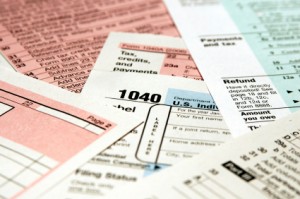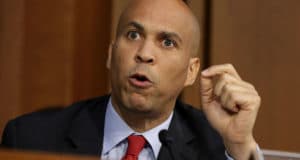 The center for Freedom and Prosperity has an excellent video called Economics 101 that lays out four basic reasons Big Government is bad:
The center for Freedom and Prosperity has an excellent video called Economics 101 that lays out four basic reasons Big Government is bad:
- Government crowds out the private sector
- Big government requires big taxes
- Excessive government creates excessive debt
- Federal powers were designed to be “few and defined”
While each of these factors is important to understand, you probably noticed my emphasis on the second factor listed. For most of us, personal experience confirms that the rule of supply and demand works. No, I’m not speaking of the supply and demand philosophy made famous by Ronald Reagan and much needed to be rediscovered in our day. In this case I am speaking of the relationship between the supply of money a government has and the demands it will invent to use that money. Though simplistic, the core truth is this: big government requires big money. Shrink the money and government has no choice but to shrink itself.
One sure solution to shrinking what most in government apparently see as a bottomless well of money is what is often called the Flat Tax. Though they didn’t invent it, the concept of a pure flat tax system was best stated by Robert Hall and Alvin Rabushka of Stanford University’s Hoover Institution. They entered the concept of the flat tax into the national arena with an article in the Wall Street Journal in 1981 and expanded on it in their 1983 book. Since then, several presidential candidates, including Steve Forbes and Mike Huckabee, have championed a pure flat tax but with limited success in getting the average voter to see its necessity.
Basic Features of a Pure Flat Tax
- A Single Flat Rate: The flat tax has a single rate with a goal of making that rate as low as possible, usually less than 20 percent. This lowered rate does not penalize productive behavior like work, risk taking, and entrepreneurship. In real-world terms, you aren’t penalized for deciding to work overtime and being driven into a higher tax bracket.
- No Double Taxation: Flat tax proposals are based on the principle that income should be taxed only once: no death tax, no capital gains tax, no wealth tax, no added taxation on savings and dividends. People are not penalized for building up an estate to leave to their children, and businesses are not penalized for making a profit for their stock holders.
- No Special Preferences: The flat tax eliminates tax advantages for certain activities and behaviors. All deductions, exemptions, credits, and other loopholes are eliminated. This stimulates growth by allowing a low tax rate and by discouraging incentives to misallocate resources merely to reduce tax liability. In other words, it allows us to spend our time and energies on being productive rather than figuring how to appear not to be productive.
- Territorial Taxation: This means governments only tax income that is earned inside their national borders. Getting rid of “worldwide taxation” simplifies the tax system, promoting international trade. Most importantly, it frees taxpayers and companies to compete on a level playing field with other counties around the world.
- Transparency and Simplicity: With the elimination of an army of attorneys and a pile of paper to the moon and back, swapping favored tax breaks for campaign contributions simply goes away. While the added bonus of cleaning up corruption is nice, the basic principle of “simpler is better” holds true in such a system.
Progressive taxes have so many inherent problems that this article can’t possibly be long enough to even outline all of them. Simply put, a progressive tax ultimately rewards those who can hide the cash and penalizes those who are too honest and hardworking to try to. Over the last 60 years, it has been proven time and again that there is a direct correlation between lower taxes and simplifying tax codes and real increased revenue to the government.
So why do so many in Washington fight a flat tax? It all comes down to wanting to dip money out of the cash well without others realizing you are doing it. The current tax system produces money without accountability and rewards those who can devise ways to beat the system. Anything that demystifies the system threatens those who use its complexity as a cover for their own greed and mismanagement. And no one entity is guiltier of such duplicity than government itself. It’s time “we the people” let the politicians and bureaucrats in Washington know that they are our representatives and remember – WE are the government.
___________________________________________________________
____________________________________________________________
 Off The Grid News Better Ideas For Off The Grid Living
Off The Grid News Better Ideas For Off The Grid Living




